What Is Esophageal Cancer?
Once food is chewed and swallowed, it travels to our stomach. Digestion begins from the mouth where food is broken down using teeth and mixed with saliva. The journey from mouth to stomach is facilitated by the esophagus. This is a hollow muscular channel that contracts and expands to push food down to the stomach.
This passage has several layers of muscle. At the very end is the esophageal sphincter. This is a valve that controls the entry of food and drinks into the stomach from the esophagus. When esophageal cancer occurs, there is a formation and rapid growth of abnormal cells within the esophageal tissues. This can lead to the formation of a tumor. Though not a very common form of cancer, survival rates are low with about 10 percent of patients surviving past the 5-year mark.
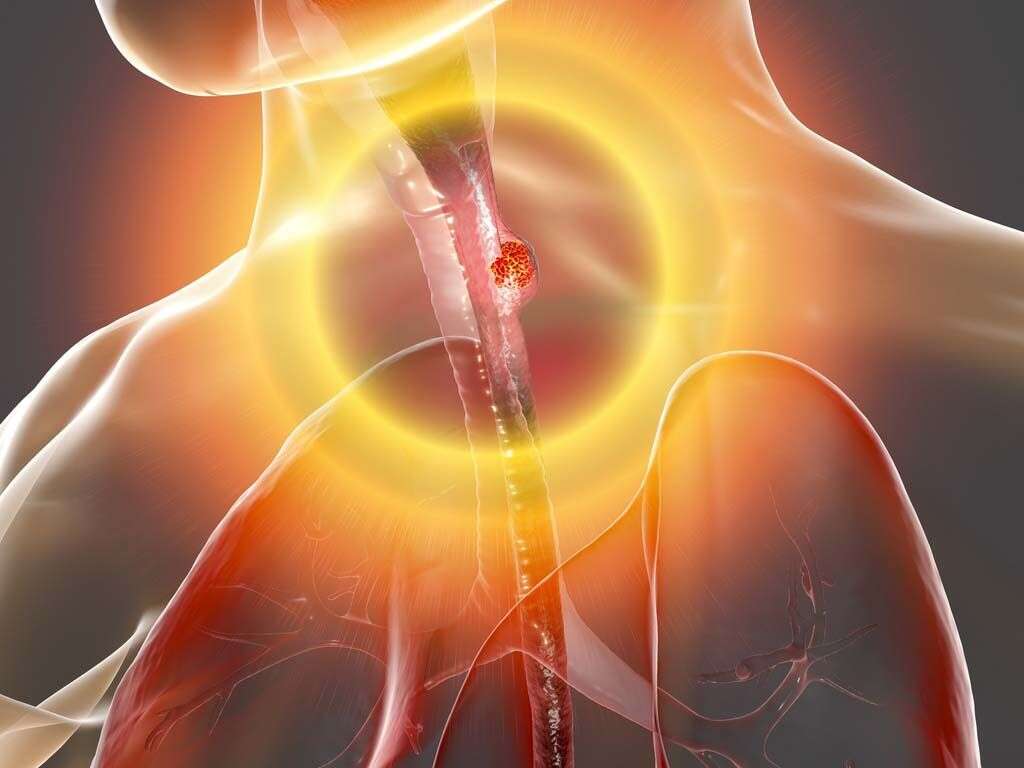
1. Squamous Cell Carcinoma (SCC)
There are two main types of esophageal cancers. Squamous cell carcinoma (SCC) is the most common type that affects the cells that line the esophagus. These cells have a flat thin shape. It normally develops in the upper and middle portions of this passage, but can also affect the rest of the esophagus.
Squamous cells can be found in other parts of the body besides the esophagus. They can be found in the skin and are responsible for a common form of skin cancer. Also referred to as SCC, it has been linked to harmful exposure to UV rays. This cancer can easily spread to other parts of the body.
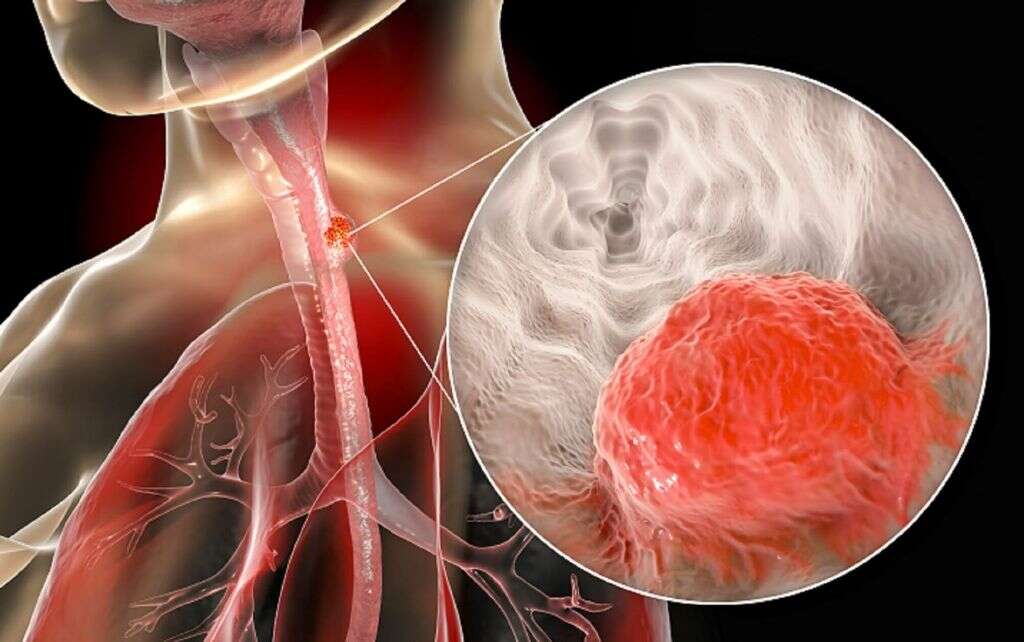
2. Adenocarcinoma
This is the second main type of esophageal cancer that arises in the mucus-secreting gland cells. It mostly appears in the lower portions of the esophagus. Adenocarcinoma occurs when squamous cells that line the passage begin to replace the mucus-secreting gland cells.
This replacement may occur as a result of damage to the gland cells by exposure to digestive acids that have escaped from the stomach, and this condition has been linked to gastroesophageal reflux disease. This cancer is more prevalent amongst Caucasian men in the U.S. While SCC cases have been on the decline, adenocarcinoma cases are on the rise.
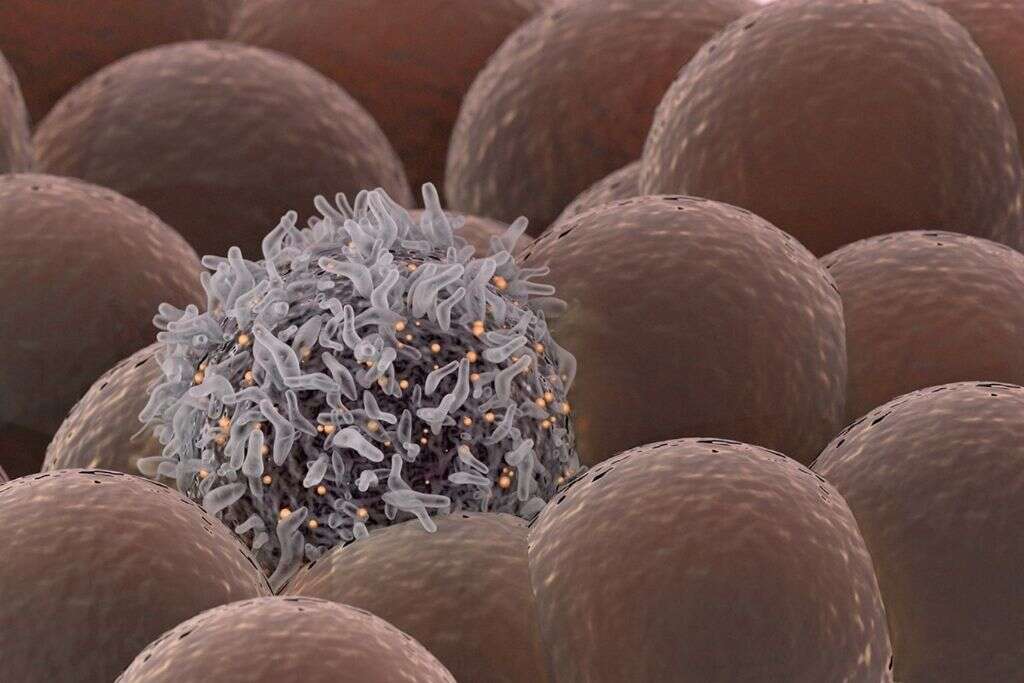
3. Gastroesophageal Reflux Disease (GERD)
Also simply referred to as acid reflux, GERD is a condition whereby stomach contents move up back into the esophagus. It is not usually dangerous, but it should not be treated with complacency. It causes a burning sensation in the chest known as heartburn. It can also cause a bitter taste at the back of the mouth and regurgitation of food from the stomach.
Damage to the throat can cause difficulty when swallowing and cause coughing fits. GERD is caused by a malfunctioning of the esophageal sphincter that fails to close properly, allowing stomach contents to rise up into the esophagus. The digestive juices are acidic, causing damage to cells.
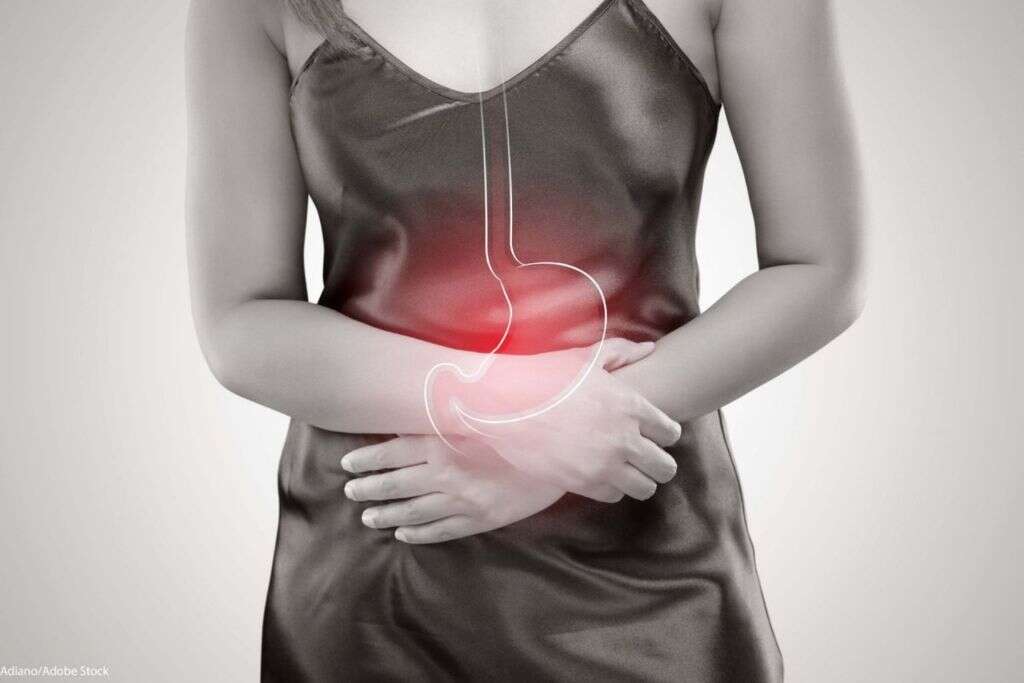
4. Barrett’s Esophagus
With prolonged GERD, there is an increased risk of developing Barrett’s esophagus. This is a complication that causes normal tissues in the esophagus to change and begin to reassemble the intestinal lining. There is also an increased risk of developing adenocarcinoma with Barrett’s esophagus.
Although it is rare for this condition to develop, and lead to adenocarcinoma, patients are still advised to undergo regular checks. This will allow for any potential cancer to be detected early and early detection can help boost the chances of successful treatment and survival. For those diagnosed with Barrett’s esophagus, lifestyle changes and medications that can put a stop to acid reflux can help to prevent the condition from worsening.

5. Smoking
The risk of developing esophageal cancer is significantly raised in people who use tobacco. This includes such items as cigarettes, pipes, cigars, snuff, and chewing tobacco. Tobacco users are at an increased risk of suffering from SCC and adenocarcinoma. The risk, of SCC, however reduces when the patient quits, while the risk of adenocarcinoma remains even after quitting.
Alcohol consumption can also increase the risk of esophageal cancers. The more alcoholic that is consumed, the higher the risk. SCC is, however, more common among alcohol drinkers than adenocarcinomas. The combination of smoking and drinking also increases the risk of SCC.

6. Symptoms
Many patients with esophageal cancer will show no symptoms in the early stages of the disease. This is partly why there is a high fatality rate because most cases are not discovered until the condition is advanced. Difficulty swallowing due to damage to the upper esophagus and throat is common. Acid reflux will drive stomach juices to these areas, corroding them.
Unintentional weight loss is another potential symptom. This may partially be due to appetite loss, difficulty swallowing, indigestion, and vomiting that often affects those with GERD. Chest pain and heartburn are also common. Coughing, hiccups, and a hoarse voice can also result from damage to the throat and upper esophagus.
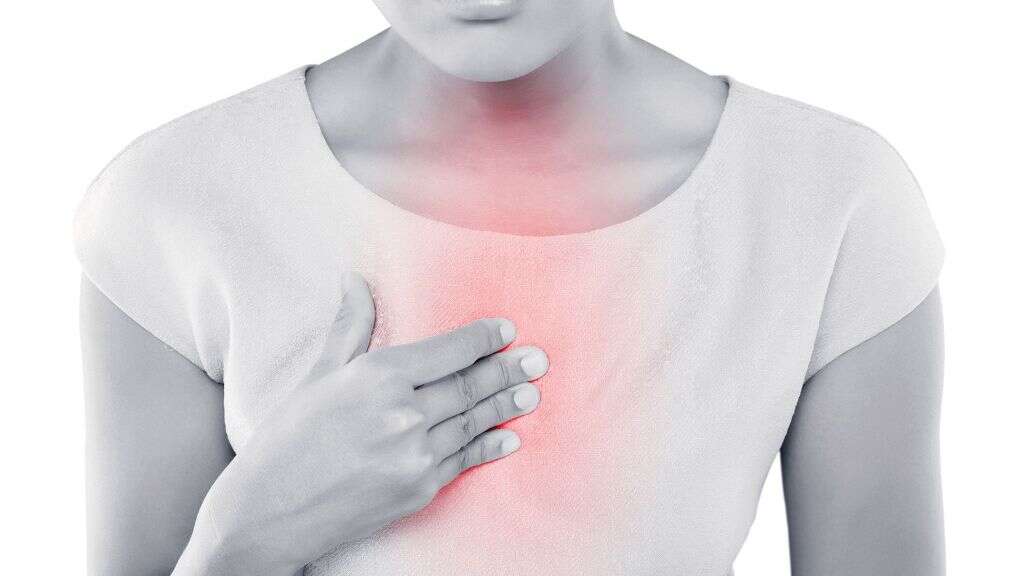
7. Complications
As mentioned, esophageal cancers are difficult to detect in the early stages because there are no obvious symptoms. This means most diagnoses occur when the cancer is already advanced. In the advanced stages, the tumors in SCC cases can be so large that they obstruct the esophagus. This can make it difficult for patients to take in any food or drink.
This obstruction can also cause pain for the patient. In adenocarcinoma cases, the sliding back of acidic digestive juices can also corrosion the lining and cause pain. This damage can also lead to bleeding that can either be slow and gradual or sporadic and severe.

8. Risk Factors
Frequent irritation of the esophagus is believed to increase the risk of esophageal cancers. GERD is one condition that often leads to irritation and damage to esophageal lining and cells. Suffering from Barrett’s esophagus also increases the risk of cellular changes that can lead to adenocarcinoma. High intake of alcohol and tobacco can also easily irritate this delicate lining.
Obesity is another factor as many obese patients will suffer from GERD. Overeating can also increase the risk of damage to the esophageal sphincter. These cancers more commonly afflict senior men. SCC is more prevalent amongst Asians and African Americans, while adenocarcinomas are mostly detected in Caucasians. Those that work with dry cleaning solvents for prolonged periods are also at increased risk.

9. Treatment
Like many other cancers, esophageal cancers are often treated through chemotherapy or radiation therapy. These treatments can help to destroy cancerous cells and shrink tumors. Chemotherapy involves the use of drugs but also has a side effect of killing healthy cells. Radiation therapy uses radiation to target cancer cells. These treatments can sometimes be combined, often resulting in more severe side effects.
Surgery is often used to remove tumors, especially if cancer has not yet spread. In more severe cases, parts of the esophagus and stomach may be removed. The passage may be reconstructed using part of the large intestine. Targeted therapies can also use medications to destroy cell proteins that are aiding the cancer cells to replicate.
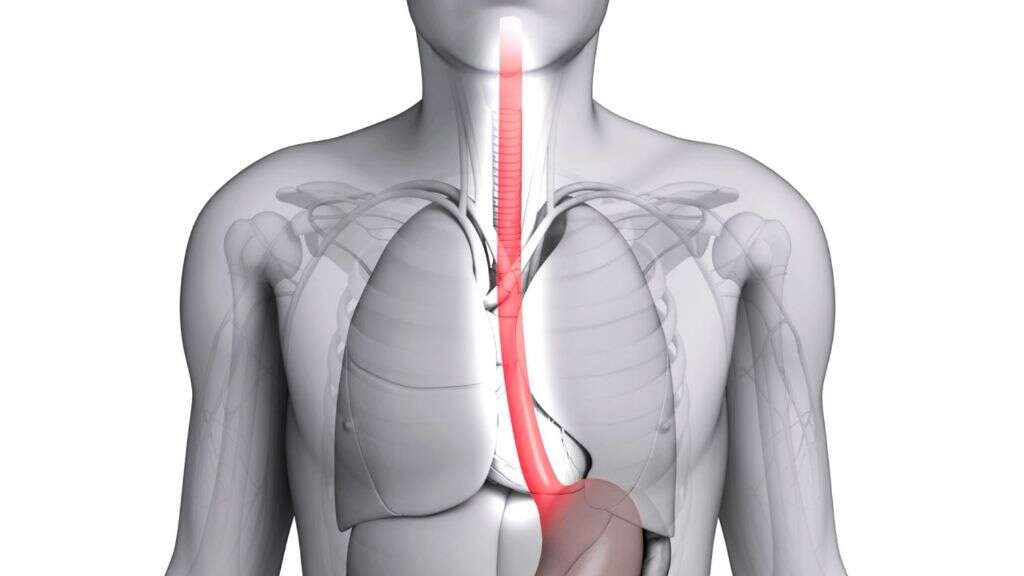
10. Prevention
Since esophageal cancers may be the result of repeated irritation to the esophagus and better treatment of the esophagus may help reduce the risk. Eating a healthier diet rich in fruits and vegetables can also be easier on the stomach. Controlling food portions can also help ease digestion and encourage weight loss.
Quitting tobacco use and excessive alcohol intake is also advisable. The harmful chemicals in tobacco are harmful even if they are not smoked. Keeping your alcohol intake to a reasonable level can also help. If you suffer GERD symptoms for more than 2 weeks, speak with your doctor to make sure it is not caused by a serious underlying condition.










